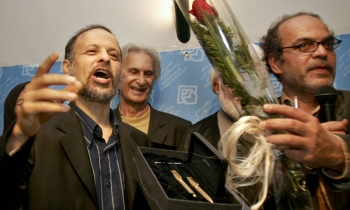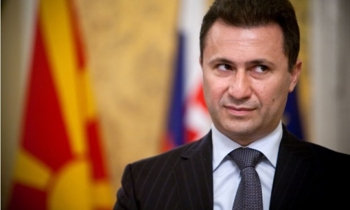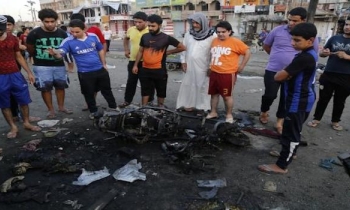The Uzbekistan government is tightening controls over local and foreign journalists working for foreign state-funded media. The cabinet approved regulations February 24 giving the Foreign Ministry wide discretion to issue formal warnings to foreign correspondents, revoke their accreditation and visas, and expel them.

On March 7, Uzreport.com published the text of a February 24, 2006 cabinet resolution with new "basic rules regulating the professional activities of foreign media correspondents in Uzbekistan." The new resolution replaces a September 11, 1998 resolution with the same title. The two are similar, but a side-by-side comparison of the texts reveals two important differences. The first involves what accredited foreign correspondents are expressly forbidden to do. The relevant passage occurs in point 23 of the 1998 resolution and point 21 of the 2006 resolution.
The restrictions follow a government crackdown on independent journalists since foreign media carried news of a May 13, 2005 massacre in the northeastern city of Andijan, where government forces shot and killed between 500 and 1,000 demonstrators, according to eyewitnesses and human rights groups.
BBC closed its Tashkent bureau in October 2005 citing government harassment. The US-funded Radio Free Europe / Radio Liberty (RFE/RL) closed its Tashkent office in December when the Foreign Ministry refused to renew its accreditation. Internews, a media-focused nongovernmental organisation, lost its final appeal and shuttered its offices in Uzbekistan also in October. Foreign news agencies reporting for a foreign audience such as ITAR-TASS, Xinhua, Deutsche Presse-Agentur, Agence France-Presse, Reuters and the Associated Press still have stringers in Tashkent.
According to RFE/RL, the three cases shared a common element. BBC, Internews, and RFE/RL are foreign organisations that served to link not only Uzbek journalists and Uzbek news consumers, but also Uzbek journalists and the international community. More importantly, this link was not subject to the control of Uzbek authorities. When it was severed, an important avenue for independent communication between Uzbekistan and the outside world was lost.

"We condemn this latest example of the Uzbek authorities' ongoing assault on press freedom," said Committee to Protect Journalists (CPJ) Executive Director Ann Cooper. "The government has now silenced virtually all independent voices in the media inside Uzbekistan."
Article 22 of the new regulations prohibits Uzbek citizens from working for foreign state-funded media without Foreign Ministry accreditation. The article could be used to silence those few journalists who continue to provide information to Western broadcasters and Russian and European based Central Asia news websites, CPJ said.
Under Article 21, "Accredited foreign correspondents are forbidden to call for the violent change of the existing constitutional system, the violation of Uzbekistan's territorial sovereignty by promoting war and violence, cruelty, ethnic, racial, and religious animosity. They are also forbidden to interfere in the internal affairs of Uzbekistan, to insult the honor and dignity of Uzbek citizens, to interfere in their personal [lives], or to perform other actions, responsibility for which is mandated by Uzbek law."
RFE/RL said, if the 1998 resolution forbids foreign correspondents from promoting violence, hate, and extremism, the 2006 resolution equates the promotion of "war and violence, cruelty, ethnic, racial, and religious animosity" with calls for "violent change" and "the violation of Uzbekistan's territorial sovereignty." Moreover, the 2006 resolution explicitly states that foreign correspondents cannot "interfere in the internal affairs of Uzbekistan," leaving undefined what such unwanted "interference" might constitute.
The RFE/RL report continued, taken together, these two innovations in the 2006 resolution tighten control over the interactions between the foreign media and Uzbek citizens. The first sets up for accredited foreign correspondents a broad "no-go" category of undefined "interference" in Uzbek internal affairs and the private lives of Uzbek citizens. The second warns Uzbek citizens that if they engage in any form of "professional activities" as "representatives" of unaccredited foreign media, they are breaking the law.









